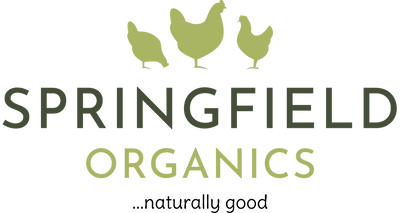
Farms can struggle when it comes to marketing the fact that they don't use antibiotics in meat production. There's a few blurred boundaries here which can depend on the type of antibiotics, why they're being used, and the frequency of their use. You might have come across slogans and catchy phrases such as
"Antibiotic Free" or
"Raised Without Antibiotics", and these can be quite misleading. Technically all of the meat you buy is antibiotic free as it's illegal to sell meat which contains any trace of antibiotics. This does not mean that the chicken you're buying has never come into contact with antibiotics - but rather that it has passed a withdrawal period long enough to ensure that no trace of antibiotics remain in their systems. This allows companies to put an "Antibiotic Free" sticker on their products as if it were to be taken to a lab and analysed you'd most likely find no trace.
The Concern
There are a high number of people who are allergic to certain medications and should not have to worry about this when buying meat. This is where the importance of logos and accreditation's can come into play. Taking Springfield for example, we adhere to the standards set by the Organic Farmers and Growers for all of our birds. Having their logo on our organic chickens gives confidence to our customers that we're consistently following the best guidelines for rearing poultry which of course includes no routine use of antibiotics. The main concern for many is not the use of antibiotics, but rather the misuse of them.
Why are antibiotics used in farming at all?
There is a vast difference between safe antibiotic use and the gross misuse of them. Antibiotic use on animals can be used sparingly to treat potentially devastating illnesses such as coccidiosis - a parasitic disease which can attack the digestive systems of the birds. When faced with an illness such a this, there are a couple of different ways to deal with it:
- Allow the animals to suffer fatal consequences.
- Treat the illness after diagnosis with small amounts of medication.
- Raise the animals on routine antibiotics to prevent them contracting the illness.
Routine use is where the problems really begin. There is a growing concern that the overuse of antibiotics in animals reared for consumption is contributing to the rise of 'super-bugs'.
What are 'Super-Bugs'?
As I'm sure you know, when we receive some types of vaccinations, we are receiving a minute dosage of the actual virus itself. This works by introducing our bodies to the harmful bacteria in very manageable quantities to build our bodies natural resistance to the virus. In short: vaccines make our body produce 'antibodies' so that these same antibodies are trained in the event that the same bacteria attempts to attack it again (Science with Springfield Organics.) What happens when you receive too much of the medication before receiving the illness is that the harmful bacteria begins to mutate and evolve into a 'super-bug'. This can result in the super-bug being present in the meat you eat which of course can make you very ill. Then when you're looking to go to the doctors and receive antibiotics to make yourself better, you can be administered with the same strand of antibiotics already given to the chickens which the super-bug is already immune to. Following this of course we have to become wary of the antibiotic-immune pathogen being spread to others who might suffer even more from the mutated bug.
Antibiotics and Growth-Promotion
The above paragraphs concern antibiotic use regarding illnesses, however the potentially even darker side to antibiotic misuse is the growth-promoting aspect. Some antibiotics encourage the speedy growth of animals at very unnatural rates. This is usually a commercial attempt to breed, butcher, and sell meat at a rapid rate to meet consumer demands.
 Farms can struggle when it comes to marketing the fact that they don't use antibiotics in meat production. There's a few blurred boundaries here which can depend on the type of antibiotics, why they're being used, and the frequency of their use. You might have come across slogans and catchy phrases such as "Antibiotic Free" or "Raised Without Antibiotics", and these can be quite misleading. Technically all of the meat you buy is antibiotic free as it's illegal to sell meat which contains any trace of antibiotics. This does not mean that the chicken you're buying has never come into contact with antibiotics - but rather that it has passed a withdrawal period long enough to ensure that no trace of antibiotics remain in their systems. This allows companies to put an "Antibiotic Free" sticker on their products as if it were to be taken to a lab and analysed you'd most likely find no trace.
Farms can struggle when it comes to marketing the fact that they don't use antibiotics in meat production. There's a few blurred boundaries here which can depend on the type of antibiotics, why they're being used, and the frequency of their use. You might have come across slogans and catchy phrases such as "Antibiotic Free" or "Raised Without Antibiotics", and these can be quite misleading. Technically all of the meat you buy is antibiotic free as it's illegal to sell meat which contains any trace of antibiotics. This does not mean that the chicken you're buying has never come into contact with antibiotics - but rather that it has passed a withdrawal period long enough to ensure that no trace of antibiotics remain in their systems. This allows companies to put an "Antibiotic Free" sticker on their products as if it were to be taken to a lab and analysed you'd most likely find no trace.
